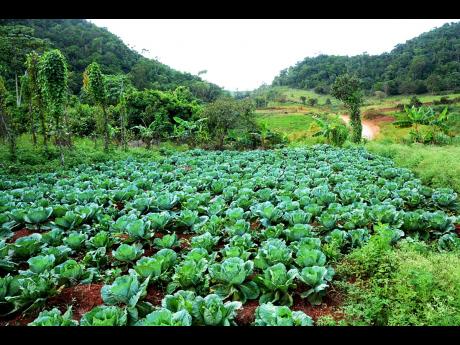Empowering women through farming
Shada Clarke recalled vividly the day last year when she got a call from Tameka Hector-Boyd of Abilities Foundation inviting her to be part of the pioneering group of participants in the Strengthening Engagement for Women with Disabilities through Sustainable Farming Techniques project.
She admitted to feeling proud, as well as flustered, when told she had been the first person who was considered for the project.
“After the call I was there sitting at home, wondering and pondering, as a person with a disability, what can I contribute to the project? And for a person with a disability, I came here and I did my best and here I am now, to say thanks to Miss Tameka Boyd to be a part of this project.”
Clarke was among 25 women between the ages of 19 and 62 who completed a seven-month project in agricultural training at the Abilities Foundation premises at 191 Constant Spring Road, Kingston, and she was one of two people who gave testimonials at their closing out and graduation ceremony on Tuesday. The training included workshops, container farming, practical on-the-farm modules in traditional and innovative farming practices, such as hydroponics and included field trips to a number of working farms.
Admitting that she knew very little about farming, Clarke started by setting seeds in a seedling tray and thereafter learned when and how to transfer the seedlings to the open field of the hydroponics apparatus. Now she is inspired.
“I want to set up my own backyard farming to help my family and the restaurant that is in my yard,” she shared with the audience.
Meanwhile, 62-year-old Pauline Young who gave the other testimonial admitted to having a great experience. She also learned about different types of farming methodologies and admitted to also having a plan.
“I have learnt about the different types of farming and how farming can help me to be an independent person, by growing different types of crops to sustain my family and also earn an income by selling the produce to others. We learnt about the different types of crops such as lettuce, pak choi which are planted from seeds to seedlings and to reaping, in the space of six weeks.
“I am fascinated by the hydroponic farming because it is a type of farming you don’t need to use soil. Instead, it operates with water and fertilizer, which is known as a nutrient-based solution that runs through plastic (PVC) pipes, different sizes of hoses and a person can grow many different types of crops.
“Training was very hands-on, not only have I learnt about farming and crops I also meet people who I will always remember. I will use my container farming skills to grow herbs and vegetables for a healthier lifestyle for me and my personal friends. It will also create opportunities for me to earn an income and I would recommend this project for others.”
All the participants were either physically or intellectually challenged with one deaf person in the group, with most being past students of Abilities Foundation, which selected them based on the fact that most were unemployed.
In her remarks, chief technical director of the Social Security Division in the Ministry of Labour, Audrey Deer-Williams, pointed out that women with disabilities in Jamaica face many hard challenges, including, but not limited to joblessness, abuse, stigma and neglect which is often made worse by a lack of family support. This training, she said, would go a far way in levelling the playfield for them.
“This project has changed the trajectory of their lives and I am confident that they will positively impact not only their immediate families, but their communities. These innovative farming techniques will undoubtedly empower these women to create their own backyard gardens that will enable them to feed themselves and their families.”
The Canadian Fund for Local Initiatives which financed the project in the sum of $3,043,500 provided a stipend for the women throughout the project.

